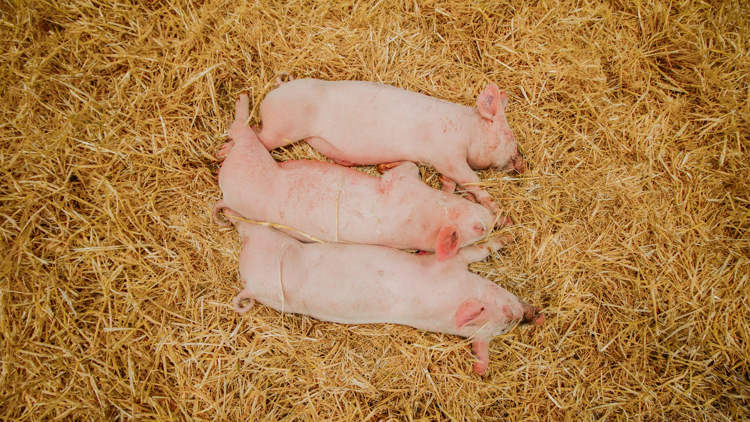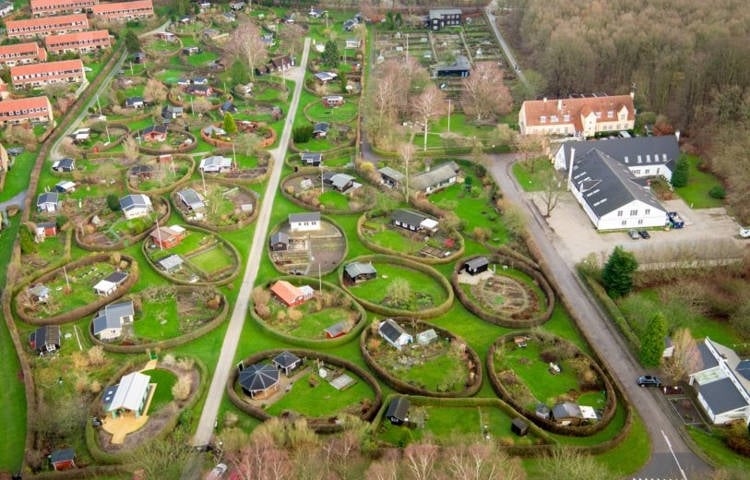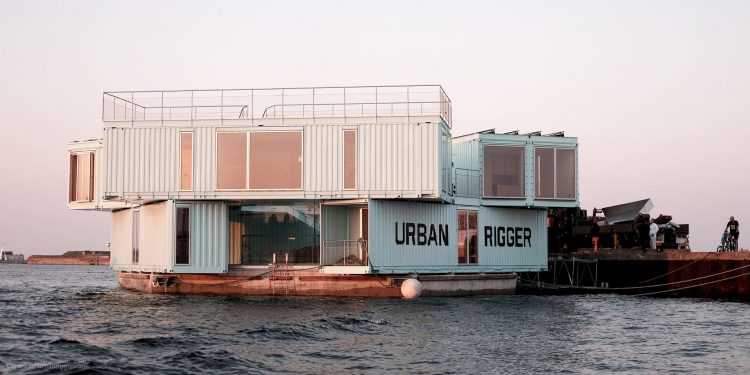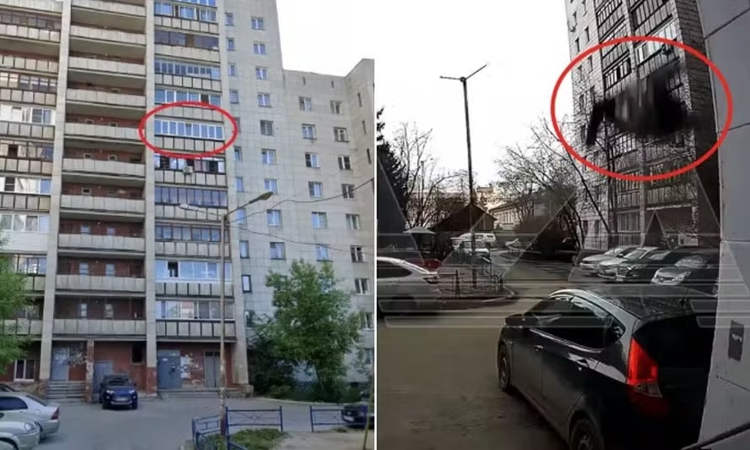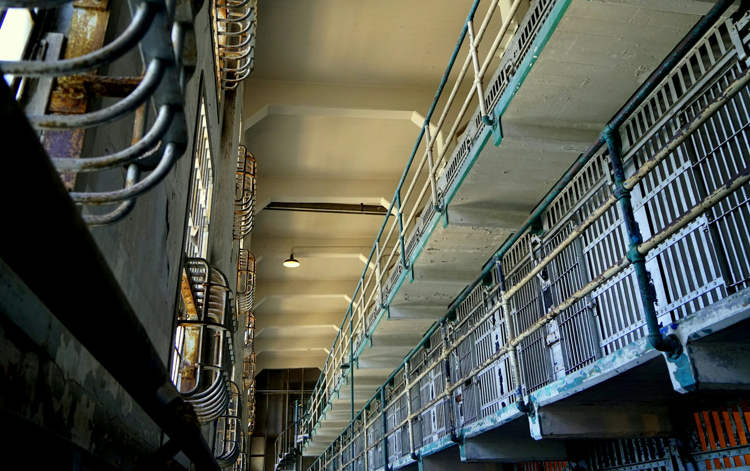Chilean-born artist Marco Evaristti has come under fire for trying to starve three little piglets to death as part of a controversial art installation meant to raise awareness about animal welfare.
Marco Evaristti sparked controversy when he originally announced plans for his “And Now You Care?” exhibition, but he really attracted criticism both from animal rights activists and the general public when it actually became a reality. Located in a former butcher’s warehouse in the Meatpacking District of Copenhagen, “And Now You Care?” featured three little piglets on a pile of hay, trapped in a cage made up of two metal shopping carts and surrounded by paintings of slaughtered pigs and the Danish flag. It was already an unsettling display, but it was his plan to only give the piglets water and let them starve to death that really shocked everyone.

